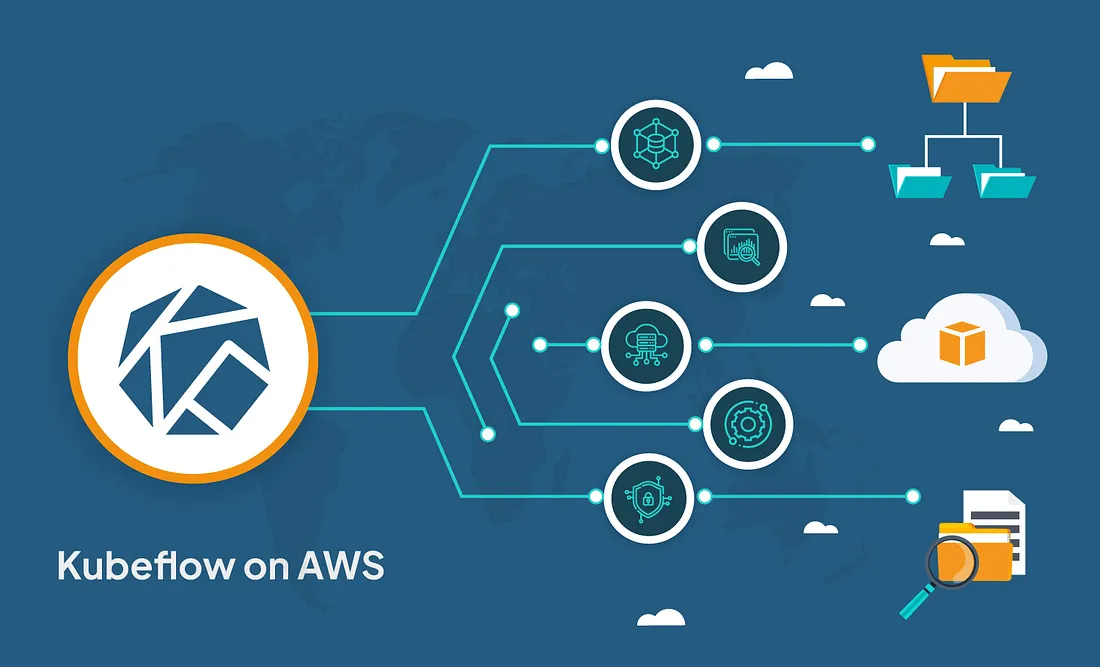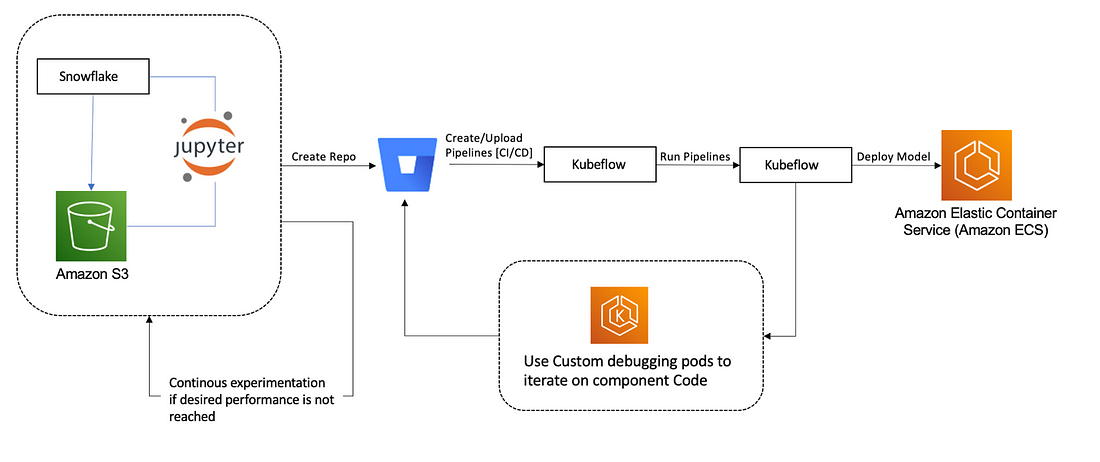
Transform your mobility solutions with our industry-tailored cloud services. From fleet management to vehicle tracking, we enhance efficiency, safety, and streamline operations.
Our Solutions
Ankercloud offers a comprehensive range of cloud services tailored to the unique needs of the mobility industry. Here's how we can help you succeed:
Check out our blog
What are the challenges of cloud migration?
In today's rapidly evolving digital landscape, many organizations are embracing the potential of cloud computing to drive innovation, enhance scalability, and improve operational efficiency. Nevertheless, the process of transitioning to cloud computing comes with its own set of difficulties.To ensure a successful transition, it is crucial to understand and address the obstacles that can arise during the cloud migration process. In this article, we explore some of the common challenges organizations face.
1. Data transfer and bandwidth limitations
Transferring large volumes of data to the cloud can be time-consuming and bandwidth-intensive. Limited network bandwidth or unreliable internet connectivity can result in extended migration periods, causing disruptions to normal business operations. Careful planning, including the use of data compression techniques, prioritization of critical data, and leveraging cloud-based data transfer solutions, can help mitigate these challenges.
2. Security and compliance concerns
One of the primary concerns when moving to the cloud is ensuring the security and compliance of sensitive data. Organizations must evaluate their cloud provider's security measures, including data encryption, access controls, and compliance certifications. Additionally, they need to assess whether the cloud environment aligns with their specific industry regulations and privacy requirements.
3. Compatibility and complexity of existing systems
Migrating existing systems and applications to the cloud can be challenging due to compatibility issues and complex dependencies. Legacy systems may require modifications or redevelopment to work efficiently in a cloud environment.
4. Lack of Migration Strategy and Planning
Lack of a comprehensive migration strategy and proper planning can lead to significant challenges. It's crucial to evaluate the existing infrastructure, determine the optimal cloud architecture, and establish a well-defined migration roadmap. Failure to do so may result in cost overruns, project delays, or even operational disruptions.
5. Effective cost management
Cloud migration introduces new cost models and pricing structures, such as pay-as-you-go or resource-based billing. Organizations must carefully analyze their usage patterns, optimize resource allocation, and implement cost management strategies to avoid unexpected expenses. Failure to monitor and control costs may result in budget overruns and inefficient resource utilization.
6. Vendor lock-in risks
Choosing the right cloud service provider is crucial, as switching providers later can be complicated and costly. Organizations should carefully evaluate vendor offerings, contract terms, and consider adopting a multi-cloud or hybrid cloud strategy to minimize the risk of vendor lock-in.
7. Organizational change and skills gap
Cloud migration often requires organizational and cultural changes. Employees need to adapt to new technologies, processes, and workflows. A lack of cloud expertise and skills within the organization can slow down the migration process and impact successful implementation.
8. Application dependencies and interoperability
Applications designed to operate in traditional on-premises environments may not function optimally in the cloud. Differences in infrastructure, operating systems, and dependencies can lead to compatibility issues, requiring modifications or even complete redevelopment of the applications. This challenge demands careful planning, extensive testing, and sometimes the need for skilled developers to ensure a smooth transition.
9. Operational resilience during outages or disruptions
Cloud service outages or disruptions can affect business continuity. Organizations must plan for potential risks and design resilient architectures to minimize the impact of downtime or service interruptions on critical business operations.
Navigating these challenges effectively requires a proactive and well-informed approach. Partnering with experienced cloud migration consultants or leveraging the expertise of cloud service providers can significantly ease the transition and ensure a successful migration journey.
At Ankercloud, we understand the complexities of cloud migration. Our team of experts is dedicated to helping businesses navigate these challenges and leverage the full potential of cloud technologies. Contact us today to learn more about our services and how we can support your cloud migration journey.
Generative Artificial Intelligence (GenAI)
Innovative Algorithms: Generative AI Reshaping Industries
One of the most fascinating areas within AI is Generative Artificial Intelligence (GenAI), a technology that enables computers to create content that ranges from images and music to text and even code. Public cloud providers, such as Amazon Web Services (AWS), Google Cloud Platform or Microsoft, have made significant strides in this field with its Generative Artificial Intelligence (GenAI) offerings.
Generative Artificial Intelligence involves the use of machine learning algorithms to create original content, imitating human-like creativity. These algorithms are trained on vast datasets and can produce everything from images and music to text and video. The cornerstone of GenAI is its ability to learn patterns and relationships from existing data and generate new content that adheres to those patterns.
Ankercloud stands at the forefront of leveraging GenAI offerings to unlock unparalleled creative potential. By combining cutting-edge technology with Ankercloud’s expertise, businesses can harness the power of Generative AI to transform their operations and captivate their target audience.
The Power of AWS GenAI Services
With Ankercloud’s GenAI services, the possibilities are as diverse as they are exciting:
Custom GenAI Models
Our team of experienced AI professionals collaborates closely with your business to create bespoke Generative AI models. These models are finely tuned to cater to your unique content creation needs, whether it's generating images, videos, text, or even music.
AI Workload Expertise
Ankercloud is well-versed in premier machine learning service from AWS and GCP. We utilize workloads like Amazon SageMaker to develop, train, and deploy GenAI models, ensuring your business stays at the forefront of AI-driven innovation.
Diverse Industry Applications
Our GenAI services transcend industry barriers. Whether you're in e-commerce, design, entertainment, healthcare, or gaming, Ankercloud has the expertise to tailor GenAI solutions that align with your business objectives.
Ankercloud's GenAI Experience: Tangible Insights from Successful Projects
Ankercloud has successfully implemented several projects, in collaboration with AWS and GCP, to provide tangible solutions for various customers. Here are a few detailed examples:
1. Customer Support Chatbot
- Verticals: EdTech, Commercial & Governance
- Challenge: A global language solutions startup faced delays and management issues due to manually handling user queries.
- Solution: Ankercloud's solution involved developing an AI-driven chatbot using Amazon Lex, Amazon Kendra, and Amazon Connect. This bot autonomously provides answers, directs users to the right department, and improves over time.
- Outcome: Reduced expenses, quicker support, enhanced customer satisfaction, and improved agent capabilities.
2. Public Sector Chatbot
- Challenge: customer in the German Public Sector needed an AI-driven chatbot for its website, offering quick responses, natural conversations, and global contact information.
Solution: Ankercloud built a conversational chatbot using AWS services like Amazon Lex, Lambda function, and API Gateway.
-Outcome: The chatbot effectively captures user intent, retrieves data from a PostgreSQL database, and provides tailored responses.
3. Automatic Report Generation
- Verticals: Insuretech, Healthcare
- Challenge: A Health Insurance Startup dealt with manual and time-consuming processes in handling insurance claims.
-Solution: Ankercloud automated this process through Optical Character Recognition (OCR), validation models, and report generation.
- Outcome: Doctors can quickly access key decision-making data points, treat more patients, and efficiently handle incoming documents.
Forecasted Projects
Ankercloud is actively engaged in several ongoing projects:
- Generating synthetic data for ML model training.
- Developing a recommendation engine for SaaS applications.
- Crafting an NLP chatbot integrated with popular messaging services.
- Creating custom content for educational applications.
These tangible case studies showcase Our expertise in utilizing GenAI to address challenges across various industries, delivering efficiency, cost savings, and enhanced user experiences. Through innovative solutions and the power of collaboration, We are shaping the future of AI-driven transformation.
Conclusion
Ankercloud's utilization of AWS Generative Artificial Intelligence (GenAI) services represents a paradigm shift in the way businesses innovate and create. By embracing this technology, organizations can unlock new levels of efficiency, creativity, and competitiveness. Partner with Ankercloud today to embark on a journey of AI-powered transformation and secure a brighter, more innovative future for your business.
Kubeflow on AWS

What is Kubeflow?
The Kubeflow project aims to simplify, portability, and scalability of machine learning (ML) workflow deployments on Kubernetes. Our objective is to make it simple to deploy best-of-breed open-source ML systems to a variety of infrastructures, not to replicate other services. Run Kubeflow wherever Kubernetes is installed and configured.
Need of Kubeflow?
The need for Kubeflow arises from the challenges of building, deploying, and managing machine learning workflows at scale. By providing a scalable, portable, reproducible, collaborative, and automated platform, Kubeflow enables organizations to accelerate their machine learning initiatives and improve their business outcomes.
Here are some of the main reasons why Kubeflow is needed:
Scalability: Machine learning workflows can be resource-intensive and require scaling up or down based on the size of the data and complexity of the model. Kubeflow allows you to scale your machine learning workflows based on your needs by leveraging the scalability and flexibility of Kubernetes.
Portability: Machine learning models often need to be deployed across multiple environments, such as development, staging, and production. Kubeflow provides a portable and consistent way to build, deploy, and manage machine learning workflows across different environments.
Reproducibility: Reproducibility is a critical aspect of machine learning, as it allows you to reproduce results and debug issues. Kubeflow provides a way to reproduce machine learning workflows by using containerization and version control.
Collaboration: Machine learning workflows often involve collaboration among multiple teams, including data scientists, developers, and DevOps engineers. Kubeflow provides a collaborative platform where teams can work together to build and deploy machine learning workflows.
Automation: Machine learning workflows involve multiple steps, including data preprocessing, model training, and model deployment. Kubeflow provides a way to automate these steps by defining pipelines that can be executed automatically or manually.
Architecture Diagram:

What does Kubeflow do?
Kubeflow provides a range of tools and frameworks to support the entire ML workflow, from data preparation to model training to deployment and monitoring. Here are some of the key components of Kubeflow:
Jupyter Notebooks: Kubeflow includes a Jupyter Notebook server that allows users to run Python code interactively and visualize data in real-time.
TensorFlow: Kubeflow includes TensorFlow, a popular open-source ML library, which can be used to train and deploy ML models.
TensorFlow Extended (TFX): TFX is an end-to-end ML platform for building and deploying production ML pipelines. Kubeflow integrates with TFX to provide a streamlined way to manage ML pipelines.
Katib: Kubeflow includes Katib, a framework for hyperparameter tuning and automated machine learning (AutoML).
Kubeflow Pipelines: Kubeflow Pipelines is a tool for building and deploying ML pipelines. It allows users to define complex workflows that can be run on a Kubernetes cluster.
What is Amazon SageMaker?
Amazon SageMaker is a fully-managed machine learning service that enables data scientists and developers to build, train, and deploy machine learning models at scale. Kubeflow, on the other hand, is an open-source machine learning platform that provides a framework for running machine learning workflows on Kubernetes.
Using Amazon SageMaker with Kubeflow can help streamline the machine learning workflow by providing a unified platform for model development, training, and deployment. Here are the key steps to using Amazon SageMaker with Kubeflow:
Set up a Kubeflow cluster on Amazon EKS or other Kubernetes platforms.
● Install the Amazon SageMaker operator in your Kubeflow cluster. The operator provides a custom resource definition (CRD) that allows you to create and manage SageMaker resources within your Kubeflow environment.
● Use the SageMaker CRD to create SageMaker resources such as training jobs, model endpoints, and batch transform jobs within your Kubeflow cluster.
● Run your machine learning workflow using Kubeflow pipelines, which can orchestrate SageMaker training jobs and other components of the workflow.
● Monitor and manage your machine learning workflow using Kubeflow’s web-based UI or command-line tools.
● By integrating Amazon SageMaker with Kubeflow, you can take advantage of SageMaker’s powerful features for model training and deployment, while also benefiting from Kubeflow’s flexible and scalable machine learning platform.
Amazon SageMaker Components for Kubeflow Pipelines:
Component 1: Hyperparameter tuning job
The first component runs an Amazon SageMaker hyperparameter tuning job to optimize the following hyperparameters:
· learning-rate — [0.0001, 0.1] log scale
· optimizer — [sgd, adam]
· batch-size– [32, 128, 256]
· model-type — [resnet, custom model]
Component 2: Selecting the best hyperparameters
During the hyperparameter search in the previous step, models are only trained for 10 epochs to determine well-performing hyperparameters. In the second step, the best hyperparameters are taken and the epochs are updated to 80 to give the best hyperparameters an opportunity to deliver higher accuracy in the next step.
Component 3: Training job with the best hyperparameters
The third component runs an Amazon SageMaker training job using the best hyperparameters and for higher epochs.
Component 4: Creating a model for deployment
The fourth component creates an Amazon SageMaker model artifact.
Component 5: Deploying the inference endpoint
The final component deploys a model with Amazon SageMaker deployment.
Conclusion:
Kubeflow is an open-source platform that provides a range of tools and frameworks to make it easier to run ML workloads on Kubernetes. With Kubeflow, you can easily build and deploy ML models at scale, while also benefiting from the scalability, flexibility, and reproducibility of Kubernetes.
Ankercloud: Partners with AWS, GCP, and Azure
We excel through partnerships with industry giants like AWS, GCP, and Azure, offering innovative solutions backed by leading cloud technologies.



The Ankercloud Team loves to listen






















.jpg)